Biorefining microalgae: successfully scaling up
An interview with the co-founder and CEO of AlgoSource
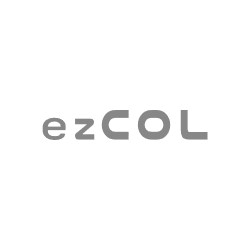
Key words
Linked expertise
In order to launch a clinical study on microalgae with cholesterol-lowering properties, the MedTech company ezCOL needed a volume of biomass exceeding one kilogram dry wet. The strain had not yet been cultivated at this scale; the company put Capacités experts in charge of defining and implementing the scale-up conditions and then supplying the dried biomass necessary for the clinical trial.
As an extension to the specifications provided by ezCOL, engineers from both companies first established a technology transfer protocol. The scale-up parameters could then begin to be defined on a highly controlled photobioreactor from the AlgoSolis technology platform, operated by Capacités engineers.
This strain of microalgae grows naturally in extreme conditions, so the parameters of temperature, pH, light and oxygen level had to be accurately adjusted. At the end of this first phase of study, all parameters for scaling up had been defined.
The strain could then be inoculated into a 150-liter controlled photobioreactor (HECTOR). After several weeks in a fed-batch culture, the biomass volume produced reached 1.5 kg.
After undergoing a microbial analysis, the biomass produced was conditioned in capsules before being delivered to ezCOL for the clinical study.
To successfully complete this project, the Capacités’ experts benefited from support and technical equipment from the GEPEA, joint research unit of the University of Nantes, Oniris, IMT Atlantique and CNRS (The French National Centre for Scientific Research).
Our projects
These projects may also interest you
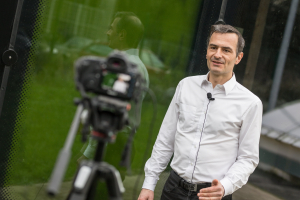
An interview with the co-founder and CEO of AlgoSource
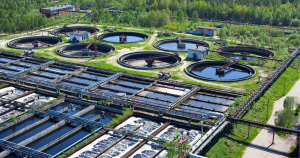
GLS is an engineering company specialised in water treatment and, as such, frequently designs wastewater treatment plants. In that context, it must comply with the legal limits of nitrogen and phosphorous content in the treated wastewater discharged from the plant.
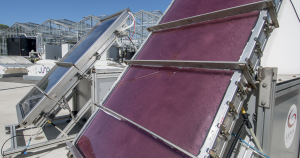
BiotechMarine reached out to Capacités in order to carry out a study concerning the influence of dissolved inorganic carbon (DIC) in the culture medium on the development of a certain strain of red alga.
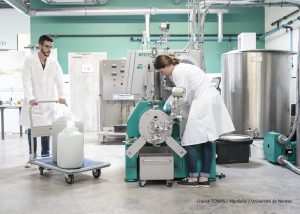
Capacités was entrusted for the implementation of the biorefinery process, as well as scaling it up for routine.
This site uses cookies and gives you control over what you want to enable